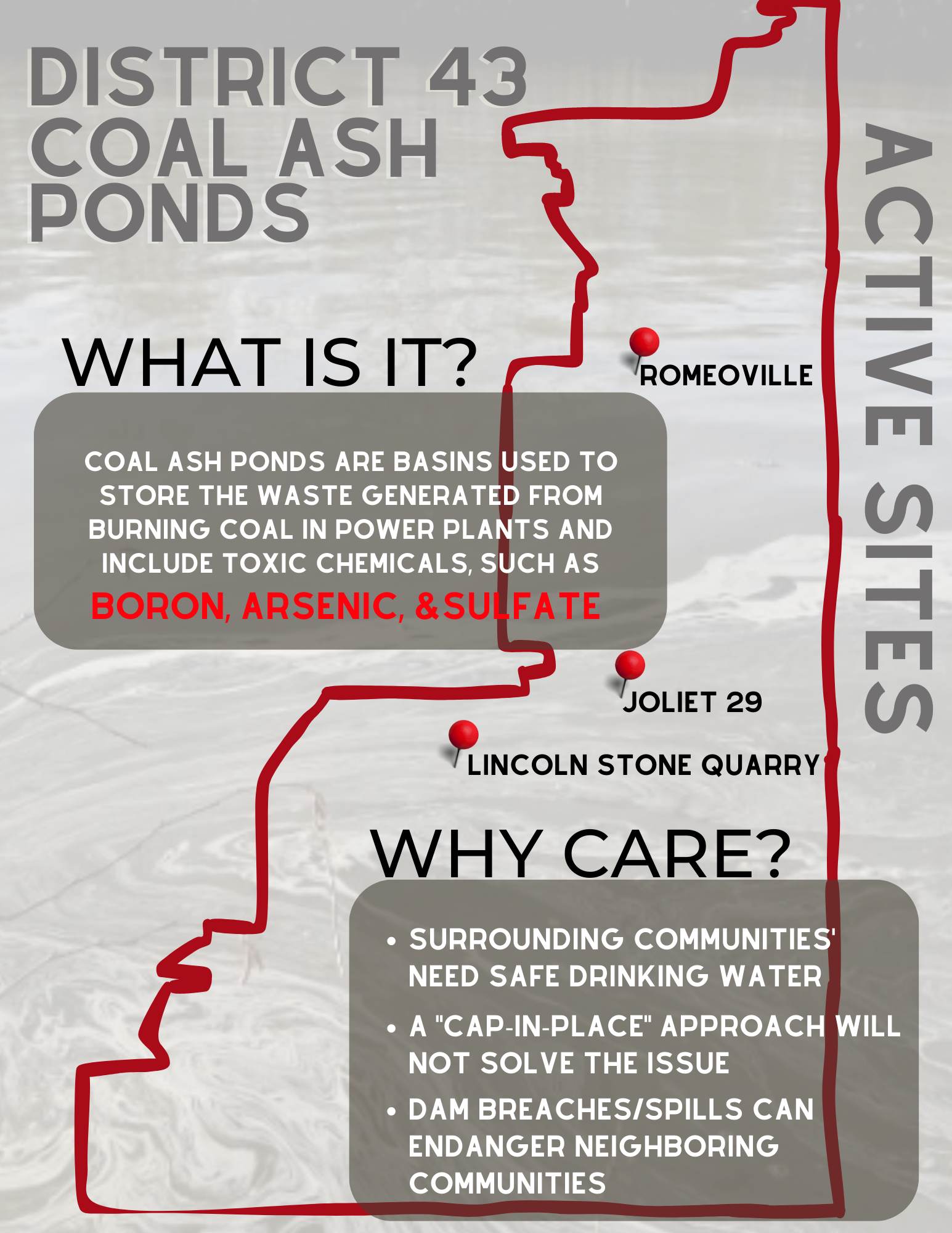- Details
In environmental news, in an article published by Grist, they highlighted the need to address the state's coal ash pollution to stop the invasive Asian carp from entering the world's largest freshwater ecosystem — Lake Michigan.
This article points out the need to prevent an ecological disaster from reaching Lake Michigan. Now more than ever we need to increase our environmental efforts on a statewide level to address coal ash including barricades like the Brandon Road Interbasin Project.
As mentioned in the article: "The longer the state waits to secure and clean up the site, the longer the carp have an opportunity to infiltrate Lake Michigan and the waterways beyond".
Read the full article here.
- Details

Thank you for visiting my website. As the state senator for the 43rd District, I have continuously worked on legislation that directly affects our communities. Many environmental issues concern our area including coal ash, carbon capture, and more which led me to compile my key thoughts on a few of these topics, read on to learn more.
Coal ash ponds, also known as coal combustion residuals (CCR) ponds, are storage facilities used to contain the waste generated by burning coal for electricity production. However, these ponds present significant environmental and health concerns due to their content of hazardous pollutants like arsenic, lead, and mercury. Many facilities stored coal ash in surface (ponds), which have the potential to leak or to fail, sending coal ash and its contaminants into water sources, including surface water and groundwater.
Illinois' 43rd District is home to three coal ash pond sites: Joliet 29, Lincoln Stone Quarry, and one in Romeoville.
Coal ash ponds, used for storing waste from coal combustion in electricity production, pose significant environmental and health risks due to their content of hazardous pollutants like arsenic, lead, and mercury. These pollutants are linked to various health issues, and the potential for leaks or failures in these ponds threatens water sources and communities.
Recent discussions surrounding the Will County Generating Station's coal ash ponds have proposed solutions ranging from a less costly cap-in-place method to a more expensive but thorough excavation and removal approach. The full remediation will remove coal ash from contact with groundwater, therefore protecting drinking water moving it away from water bodies. This poses a permanent solution to water pollution and health issues due to contamination. Cap-in-place also leaves coal ash surface impoundments permanently vulnerable to catastrophic failure due to floods or cap failure during extreme storms.
Through our efforts, we aim to raise awareness about the hazards associated with coal ash ponds and encourage informed discussions on their impact. It is crucial that concerned citizens and policymakers collaborate to find effective solutions, ensuring the proper closure and remediation of existing coal ash ponds and the adoption of cleaner energy alternatives.
By understanding the risks posed by coal ash ponds, we can work together towards a future where our communities and environment are safeguarded from the detrimental effects of coal ash waste





